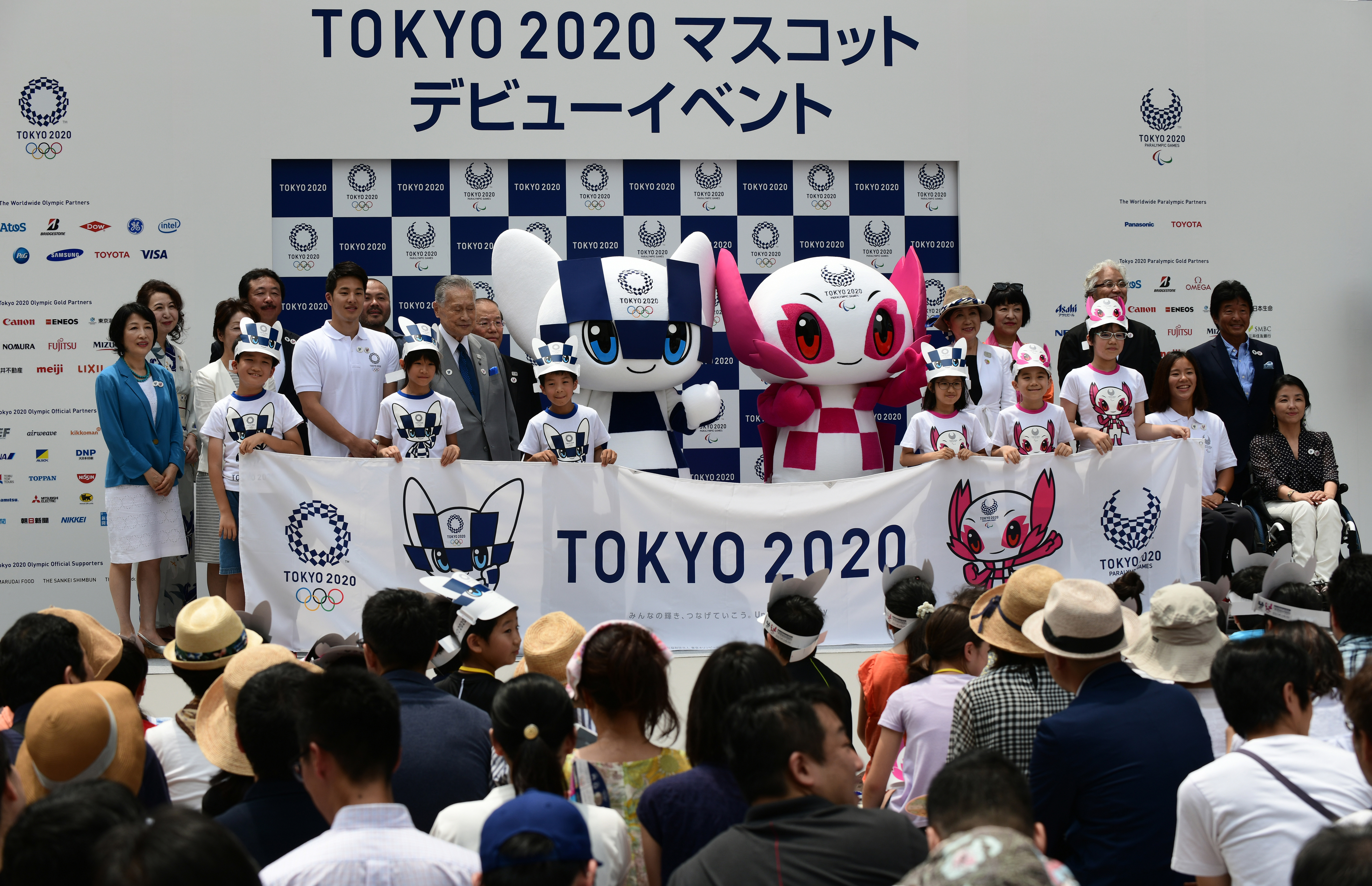Tokyo Olympic chief pushes for daylight saving time

Mascots for the Tokyo 2020 Olympics Games Miraitowa (centre L) and Someity (centre R) pose during their debut event in Tokyo on July 22, 2018. / AFP PHOTO / Kazuhiro NOGI
The chief organizer of the Tokyo 2020 Olympics appealed Tuesday for Japan to introduce daylight saving time to reduce the effect of the extreme summer heat on athletes and spectators.
“I want them to use the Olympics as a way to give a maximum push for the project,” said former prime minister Yoshiro Mori after meeting current premier Shinzo Abe.
Japan is currently sweating through a deadly heatwave that has seen the mercury top 40 degrees in some parts of the country and sparked fears over the well-being of participants at the 2020 games.
Abe responded by urging members of his ruling Liberal Democratic Party to consider the plan, according to Toshiaki Endo, a former Olympic minister who attended the meeting.
Japan adopted daylight saving time in 1948 under US occupation after defeat in World War II but scrapped it four years later amid concerns it was encouraging longer work hours.
The idea has won favor from some in business and politics as a way to allow the famously hard-working Japanese to enjoy longer summer evenings with their families.
But critics say extending daylight hours risks people staying in the office longer, hindering official efforts to clamp down on overtime.
In Tokyo, the sun sets at around 7pm, even at the height of summer.
Government spokesman Yoshihide Suga told reporters that it was just one proposal among many to mitigate the effects of the heat.
“However, the measure would have a significant impact on the everyday lives of the Japanese people and we only have two years before the event,” Suga warned.
He said officials were drafting plans to lessen the impact of the hot weather, including early starting times for competitions and laying special pavement to reduce road surface temperature.
“We are already taking comprehensive and thorough measures,” he said.